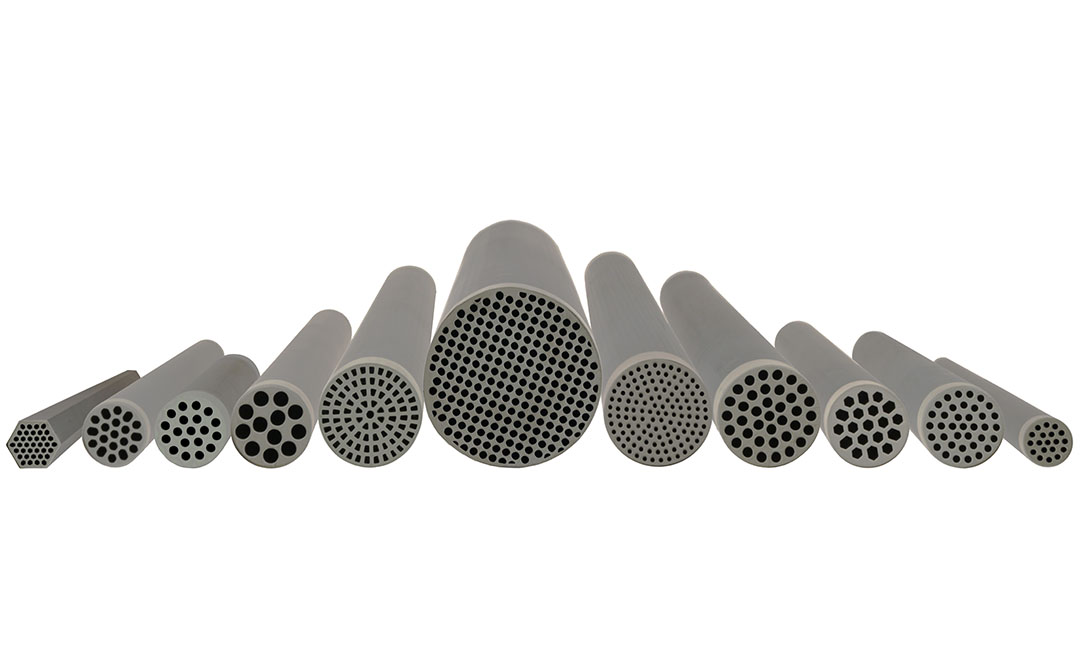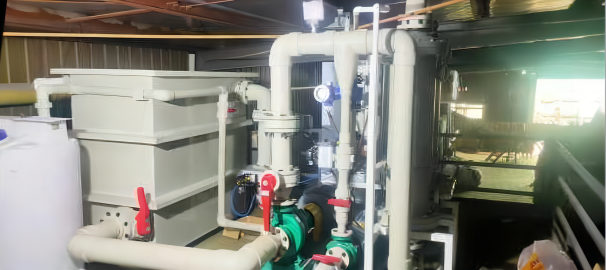Benefits of Silicon Carbide Ultrafiltration in Water Treatment
Silicon carbide ultrafiltration is a cutting-edge technology that is revolutionizing the way we treat water. This advanced filtration system offers numerous benefits that make it a superior choice for water treatment applications. In this article, we will explore the advantages of silicon carbide ultrafiltration and why it is considered a next-generation solution for water treatment.
One of the key benefits of silicon carbide ultrafiltration is its exceptional durability. Silicon carbide is a highly robust material that can withstand harsh operating conditions, such as high temperatures and corrosive chemicals. This makes it ideal for use in water treatment systems where reliability is crucial. With silicon carbide ultrafiltration, operators can have peace of mind knowing that their filtration system will continue to perform effectively over the long term.
In addition to its durability, silicon carbide ultrafiltration offers superior filtration efficiency. The unique structure of silicon carbide membranes allows for the removal of a wide range of contaminants, including bacteria, viruses, and suspended solids. This results in water that is cleaner and safer for consumption. By using silicon carbide ultrafiltration, water treatment plants can ensure that their output meets stringent quality standards and regulations.
Another advantage of silicon carbide ultrafiltration is its energy efficiency. Compared to traditional filtration methods, such as reverse osmosis, silicon carbide ultrafiltration requires less energy to operate. This can lead to significant cost savings for water treatment plants, as well as a reduced environmental impact. By choosing silicon carbide ultrafiltration, operators can achieve their water treatment goals while minimizing their energy consumption.
Furthermore, silicon carbide ultrafiltration offers a compact and modular design, making it easy to install and maintain. The small footprint of silicon carbide ultrafiltration systems allows for flexible placement within existing water treatment facilities. Additionally, the modular nature of these systems enables operators to easily scale up or down based on their specific needs. This flexibility makes silicon carbide ultrafiltration a versatile solution for a wide range of water treatment applications.

In conclusion, silicon carbide ultrafiltration is a next-generation water treatment solution that offers numerous benefits. From its exceptional durability and filtration efficiency to its energy efficiency and modular design, silicon carbide ultrafiltration is a superior choice for water treatment plants looking to improve their operations. By investing in silicon carbide ultrafiltration, operators can ensure that their water treatment systems are reliable, cost-effective, and environmentally friendly. With its advanced technology and proven performance, silicon carbide ultrafiltration is shaping the future of water treatment.
Comparison of Silicon Carbide Ultrafiltration with Traditional Water Treatment Methods
Water scarcity is a pressing issue that affects millions of people around the world. With the increasing demand for clean and safe drinking water, there is a growing need for innovative water treatment solutions. One such solution is silicon carbide ultrafiltration, a next-generation technology that offers several advantages over traditional water treatment methods.
Silicon carbide ultrafiltration is a membrane-based water treatment process that uses porous membranes made of silicon carbide to remove contaminants from water. These membranes have a high permeability and are capable of filtering out particles as small as 0.1 microns, making them highly effective at removing bacteria, viruses, and other harmful substances from water.
Compared to traditional water treatment methods such as sand filtration and chemical disinfection, silicon carbide ultrafiltration offers several key benefits. One of the main advantages of this technology is its high efficiency in removing contaminants from water. The small pore size of the silicon carbide membranes allows for a more thorough filtration process, resulting in cleaner and safer drinking water.
In addition to its superior filtration capabilities, silicon carbide ultrafiltration is also more environmentally friendly than traditional water treatment methods. Unlike chemical disinfection, which can introduce harmful substances into the water supply, silicon carbide ultrafiltration relies on physical filtration to remove contaminants, making it a more sustainable and eco-friendly option for water treatment.
Another advantage of silicon carbide ultrafiltration is its long lifespan and durability. The silicon carbide membranes used in this technology are highly resistant to fouling and corrosion, allowing them to maintain their effectiveness over time. This means that silicon carbide ultrafiltration systems require less maintenance and replacement compared to traditional water treatment methods, resulting in lower operating costs and greater efficiency.
Furthermore, silicon carbide ultrafiltration is a versatile technology that can be used in a wide range of water treatment applications. From municipal water treatment plants to industrial wastewater treatment facilities, silicon carbide ultrafiltration offers a flexible and scalable solution for addressing water quality issues.
Despite these advantages, it is important to note that silicon carbide ultrafiltration is not without its limitations. One potential drawback of this technology is its higher initial cost compared to traditional water treatment methods. The installation of silicon carbide ultrafiltration systems can be more expensive upfront, making it a less cost-effective option for some water treatment facilities.
Additionally, silicon carbide ultrafiltration may require more specialized expertise to operate and maintain compared to traditional water treatment methods. Proper training and maintenance are essential to ensure the long-term effectiveness of silicon carbide ultrafiltration systems, which may pose a challenge for some water treatment facilities.
In conclusion, silicon carbide ultrafiltration is a next-generation water treatment technology that offers several advantages over traditional methods. With its superior filtration capabilities, environmental sustainability, and versatility, silicon carbide ultrafiltration is a promising solution for addressing water quality issues around the world. While there are some limitations to consider, the benefits of silicon carbide ultrafiltration make it a compelling option for those seeking innovative and effective water treatment solutions.
Case Studies Highlighting the Effectiveness of Silicon Carbide Ultrafiltration in Water Treatment
Water scarcity is a pressing issue that affects millions of people around the world. With the increasing demand for clean and safe drinking water, innovative solutions are needed to address this challenge. One such solution is silicon carbide ultrafiltration, a next-generation water treatment technology that offers numerous benefits over traditional filtration methods.
Silicon carbide ultrafiltration is a cutting-edge technology that uses membranes made from silicon carbide, a material known for its high strength and chemical resistance. These membranes are capable of removing a wide range of contaminants from water, including bacteria, viruses, and organic compounds. This makes silicon carbide ultrafiltration an effective solution for producing clean and safe drinking water.
One of the key advantages of silicon carbide ultrafiltration is its high filtration efficiency. The membranes used in this technology have a pore size of less than 0.1 microns, which allows them to effectively remove even the smallest particles from water. This results in water that is free from harmful contaminants, making it safe for consumption.

In addition to its high filtration efficiency, silicon carbide ultrafiltration also offers a long service life. The membranes used in this technology are highly durable and resistant to fouling, which means they can operate for extended periods without the need for frequent maintenance. This makes silicon carbide ultrafiltration a cost-effective solution for water treatment, as it reduces the need for frequent membrane replacement.
To illustrate the effectiveness of silicon carbide ultrafiltration, let’s look at a few case studies where this technology has been successfully implemented. In one study conducted in a rural community in India, silicon carbide ultrafiltration was used to treat water from a contaminated source. The results showed that the technology was able to remove over 99% of bacteria and viruses from the water, making it safe for consumption. This led to a significant improvement in the health and well-being of the community members, who no longer had to worry about waterborne diseases.
In another case study conducted in a municipal water treatment plant in the United States, silicon carbide ultrafiltration was used to treat surface water from a nearby river. The technology was able to effectively remove contaminants such as algae, bacteria, and organic compounds, resulting in water that met all regulatory standards for drinking water. This allowed the plant to provide clean and safe water to its residents, ensuring their health and safety.
Overall, silicon carbide ultrafiltration is a next-generation water treatment technology that offers numerous benefits over traditional filtration methods. Its high filtration efficiency, long service life, and ability to remove a wide range of contaminants make it an effective solution for producing clean and safe drinking water. The case studies highlighted above demonstrate the effectiveness of this technology in real-world applications, showcasing its potential to address the global water scarcity crisis. As the demand for clean water continues to grow, silicon carbide ultrafiltration is poised to play a key role in providing sustainable water treatment solutions for communities around the world.

